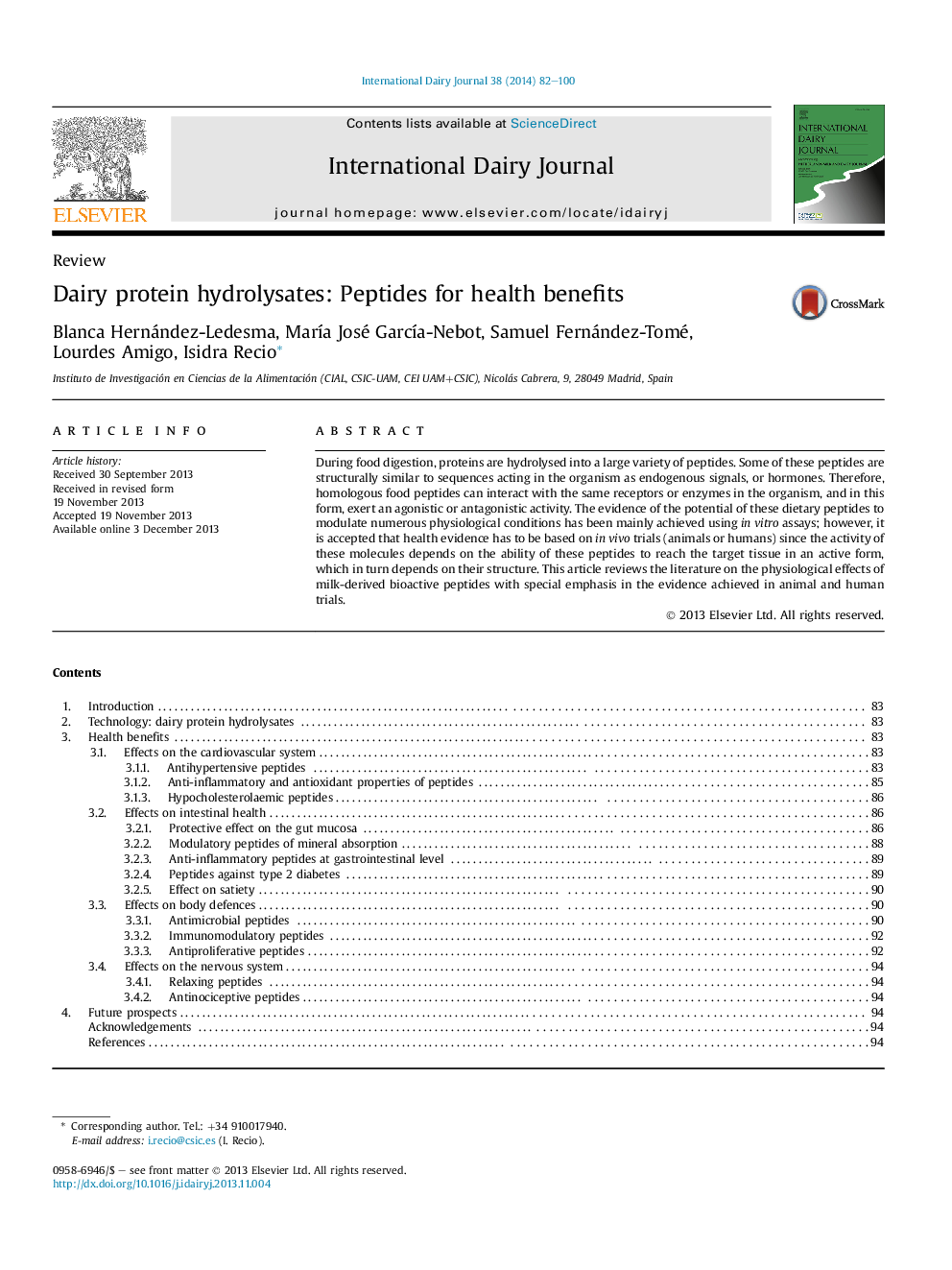| Article ID | Journal | Published Year | Pages | File Type |
|---|---|---|---|---|
| 2434240 | International Dairy Journal | 2014 | 19 Pages |
During food digestion, proteins are hydrolysed into a large variety of peptides. Some of these peptides are structurally similar to sequences acting in the organism as endogenous signals, or hormones. Therefore, homologous food peptides can interact with the same receptors or enzymes in the organism, and in this form, exert an agonistic or antagonistic activity. The evidence of the potential of these dietary peptides to modulate numerous physiological conditions has been mainly achieved using in vitro assays; however, it is accepted that health evidence has to be based on in vivo trials (animals or humans) since the activity of these molecules depends on the ability of these peptides to reach the target tissue in an active form, which in turn depends on their structure. This article reviews the literature on the physiological effects of milk-derived bioactive peptides with special emphasis in the evidence achieved in animal and human trials.
